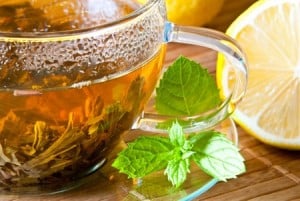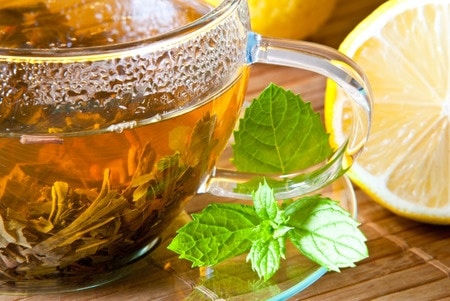Irritable bowel syndrome (IBS) is a condition that affects up to 45 million Americans. With a wide range of symptoms from stomach cramps, pain, bloating, uncontrollable urges to go to the bathroom and lethargy, IBS has a big impact on  the day to day lives of its sufferers. Some may endure moderate symptoms, while others experience debilitating complications that are highly embarrassing and can affect their psychological well-being. Any kind of travel, whether commuting to work or vacations travelling by plane, involves careful planning ahead.
the day to day lives of its sufferers. Some may endure moderate symptoms, while others experience debilitating complications that are highly embarrassing and can affect their psychological well-being. Any kind of travel, whether commuting to work or vacations travelling by plane, involves careful planning ahead.
Increased awareness of your diet and lifestyle habits will allow you to take better care to reduce symptoms once diagnosed with IBS. Stress is a big factor in triggering symptoms of IBS. You may note that certain foods and drinks can trigger your symptoms such as gluten, wheat, refined carbs, caffeine, alcohol, fried and fatty foods high in processed fats and sugar. A healthy level of exercise should also be implemented into your daily routine, as exercise stimulates normal contractions of the intestine and releases high levels of endorphins to boost your mood. Taking time out for yourself is vital in taking control of IBS, as it greatly affects your stress levels, social and professional life.
Alternative Remedies for IBS
Many alternative remedies exist to treat IBS naturally without the need for prescription medication. It’s worthwhile exploring methods that are safe, natural and pose no harmful side effects, as for some sufferers IBS is a lifelong condition. An age old remedy is the use of peppermint oil. It has a natural antispasmodic effect that calms and soothes the bowel. In a study funded by IM HealthScience, it  was found that slow release of peppermint oil greatly reduced severe abdominal symptoms in 66% of its patients over a four week trial period. In a separate trial conducted over two weeks, patients presented with a 75% reduction in symptoms. Peppermint capsules are a popular and convenient option and can be purchased at your local pharmacy or ordered online. A calming peppermint tea can also be prepared from the dried leaves of the peppermint plant, or found at the supermarket in pre-packaged tea bags.
was found that slow release of peppermint oil greatly reduced severe abdominal symptoms in 66% of its patients over a four week trial period. In a separate trial conducted over two weeks, patients presented with a 75% reduction in symptoms. Peppermint capsules are a popular and convenient option and can be purchased at your local pharmacy or ordered online. A calming peppermint tea can also be prepared from the dried leaves of the peppermint plant, or found at the supermarket in pre-packaged tea bags.
Other renowned herbal teas useful in combatting IBS symptoms include chamomile, valerian, rosemary and lemon balm. Each of these teas also contain antispasmodic and soothing properties. Studies have shown patients suffering IBS have an increased number of inflammatory cells in the colonic mucous membranes, therefore it is important to focus on consuming foods high in anti-inflammatory properties. Fresh ginger tea is effective in reducing inflammation.
MEDITATION
I have seen many patients relieve themselves of IBS symptoms including myself after learning how to manage their stress and relax when suffering from symptoms.
An article from Harvard university backs this up with some interesting studies.
A pilot study has found that participating in a nine-week training program including elicitation of the relaxation response had a significant impact on clinical symptoms of the gastrointestinal disorders irritable bowel syndrome (IBS) and inflammatory bowel disease (IBD) and on the expression of genes related to inflammation and the body’s response to stress.
The report from investigators at the Benson-Henry Institute for Mind Body Medicine at Massachusetts General Hospital (MGH) and at Beth Israel Deaconess Medical Center (BIDMC), both Harvard affiliates, is the first to study the use of the relaxation response in these disorders and the first to investigate the genomic effects of the relaxation response in individuals with any disorder. The report was published in the open-access journal PLOS ONE.
“Our results suggest exciting possibilities for further developing and implementing this treatment in a wider group of patients with gastrointestinal illness,” said Braden Kuo of the gastrointestinal unit in the MGH Department of Medicine, co-lead author of the report.
“Several studies have found that stress management techniques and other psychological interventions can help patients with IBS, at least in the short term; and while the evidence for IBD is less apparent, some studies have suggested potential benefits. What is novel about our study is demonstration of the impact of a mind/body intervention on the genes controlling inflammatory factors that are known to play a major role in IBD and possibly in IBS,” said Kuo, who is also a Harvard Medical School assistant professor of medicine.
Click here for my favorite relaxation exercise when feeling stressed or anxious
PEPPERMINT TEA RECIPE
Take one large handful of fresh peppermint leaves and boil in a saucepan of hot water for 10 minutes. Strain the leaves and pour into a cup, enjoying the therapeutic benefits of the tea.
SHOPPING LIST
1x large handful of fresh peppermint leaves from your local market
Resources: Facts about IBS www.aboutibs.org/site/what-is-ibs/facts/
Clinical trials of peppermint oil: www.medpagetoday.com/MeetingCoverage/DDW/51604
www.umm.edu/health/medical/altmed/herb/peppermint
IBS and inflammation: www.gut.bmj.com/content/51/suppl_1/i41.full




Leave A Comment